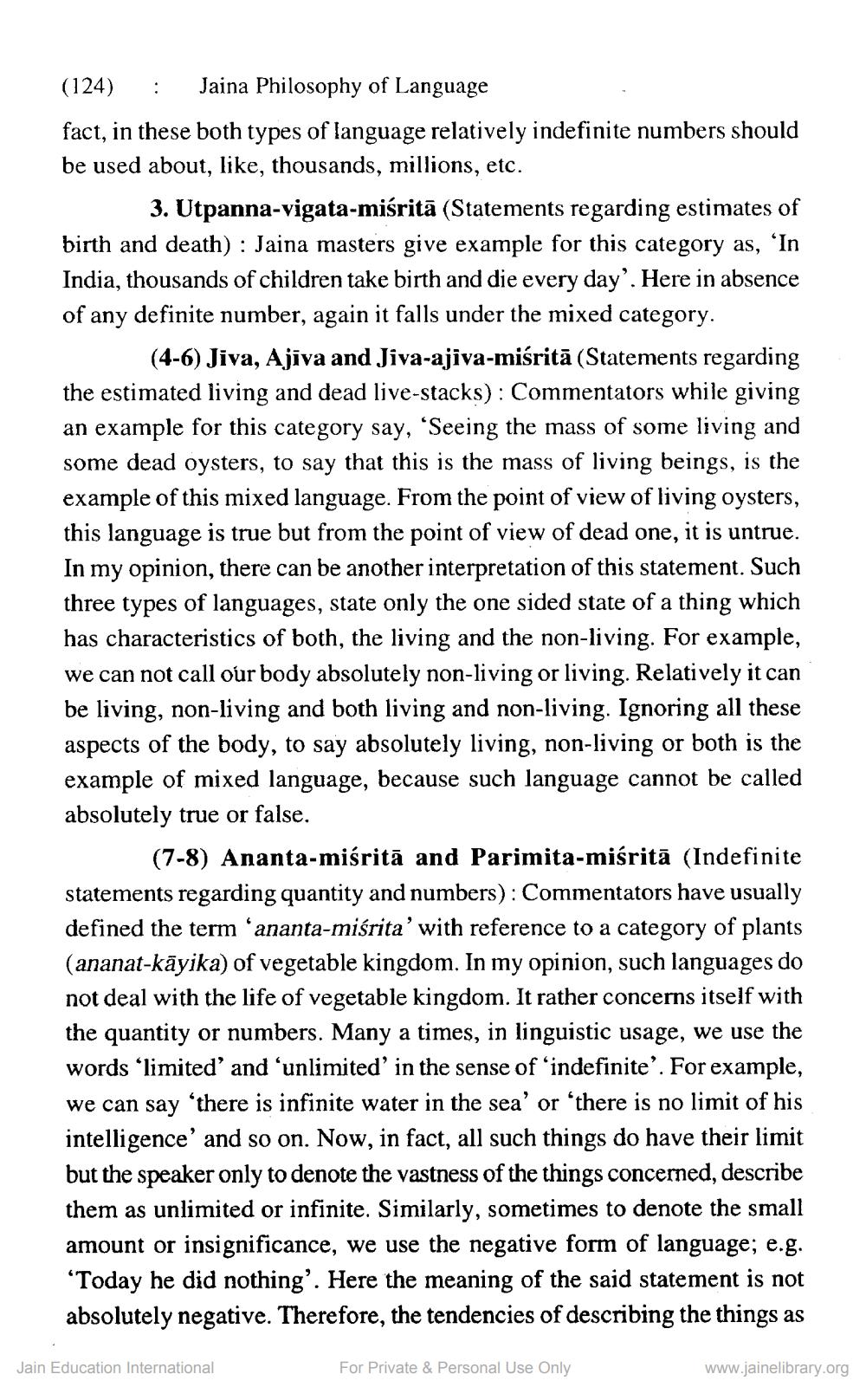________________
(124) : Jaina Philosophy of Language fact, in these both types of language relatively indefinite numbers should be used about, like, thousands, millions, etc.
3. Utpanna-vigata-misritā (Statements regarding estimates of birth and death) : Jaina masters give example for this category as, 'In India, thousands of children take birth and die every day. Here in absence of any definite number, again it falls under the mixed category.
(4-6) Jiva, Ajīva and Jiva-ajiva-misritā (Statements regarding the estimated living and dead live-stacks): Commentators while giving an example for this category say, 'Seeing the mass of some living and some dead oysters, to say that this is the mass of living beings, is the example of this mixed language. From the point of view of living oysters, this language is true but from the point of view of dead one, it is untrue. In my opinion, there can be another interpretation of this statement. Such three types of languages, state only the one sided state of a thing which has characteristics of both, the living and the non-living. For example, we can not call our body absolutely non-living or living. Relatively it can be living, non-living and both living and non-living. Ignoring all these aspects of the body, to say absolutely living, non-living or both is the example of mixed language, because such language cannot be called absolutely true or false.
(7-8) Ananta-misritā and Parimita-misritā (Indefinite statements regarding quantity and numbers): Commentators have usually defined the term “ananta-misrita' with reference to a category of plants (ananat-kāyika) of vegetable kingdom. In my opinion, such languages do not deal with the life of vegetable kingdom. It rather concerns itself with the quantity or numbers. Many a times, in linguistic usage, we use the words 'limited' and 'unlimited' in the sense of ‘indefinite'. For example, we can say there is infinite water in the sea' or 'there is no limit of his intelligence' and so on. Now, in fact, all such things do have their limit but the speaker only to denote the vastness of the things concerned, describe them as unlimited or infinite. Similarly, sometimes to denote the small amount or insignificance, we use the negative form of language; e.g. “Today he did nothing'. Here the meaning of the said statement is not absolutely negative. Therefore, the tendencies of describing the things as
Jain Education International
For Private & Personal Use Only
www.jainelibrary.org




